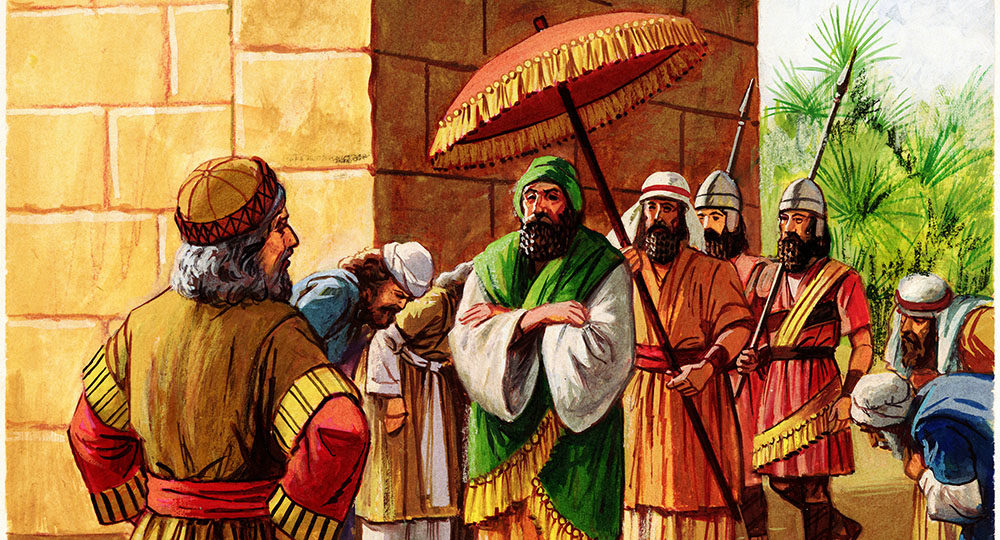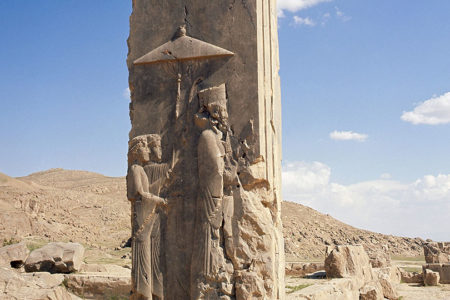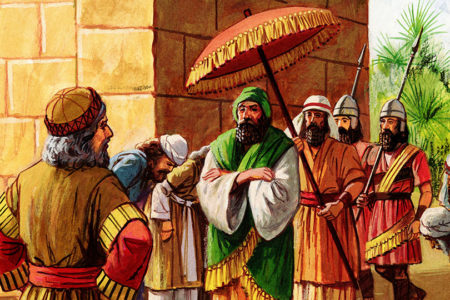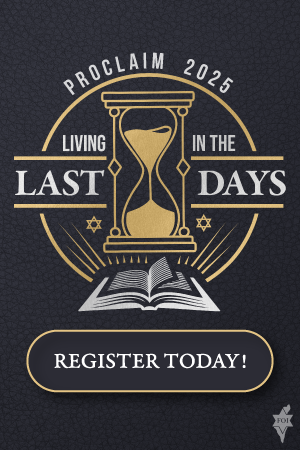Haman’s Main Problem Esther 5
Haman had it all: prestige, power, and possessions. Still, he was unhappy simply because one Jewish man refused to bow down to him. This insult incited the Persian official to pursue an evil bloodlust to kill all the Jewish people in the Persian Empire. In the fifth century B.C., that meant all the Jewish people in the world. Esther 5 reveals two root causes for Haman’s obsession: God and the Torah (Law).
Queen Esther donned her royal robes. She was about to do something dangerous by approaching the king seated on his throne, without being summoned. Providentially, the king was pleased and accepted her by extending the gold scepter (vv. 1–2). So she invited King Ahasuerus and Haman to attend a banquet. At that banquet, she requested they attend another banquet the next day, when she would reveal her petition (vv. 3–8).
Haman left jubilant until he saw Mordecai, the Jew who would not tremble before him. At home, he gathered his wife and friends to boast of his achievements (vv. 9–12). But then he declared, “Yet all this avails me nothing, so long as I see Mordecai the Jew sitting at the king’s gate” (v. 13). His wife and friends offered an appealing solution: Hang Mordecai on a gallows (v. 14).
‘He Who Keeps Israel Shall Neither Slumber Nor Sleep’ (Ps. 121:4)
Haman’s fixation about Mordecai and his people actually was a fear of the Hebrew God. The ancient rabbis said in the Talmud that hatred for the Jewish people began at Mount Sinai where the true God, the God of Israel, revealed Himself in terrific awesomeness: “Then it came to pass on the third day, in the morning, that there were thunderings and lightnings, and a thick cloud on the mountain; and the sound of the trumpet was very loud, so that all the people who were in the camp trembled” (Ex. 19:16). For sure, the Jewish people were different from all other people because of their God.
Haman should have learned at least two things about Mordecai’s God. First, He alone claims first place in all worship and devotion: “You shall have no other gods before Me” (Ex. 20:3). Second, He is a jealous God: “For the LORD your God is a consuming fire, a jealous God” (Dt. 4:24).
Throughout history there have been people like Haman who hated the true and living God (Rom. 1:28– 32). Scripture makes it clear that this evil sentiment will increase in these last days (2 Tim. 3:1–4):
But know this, that in the last days perilous times will come: For men will be lovers of themselves, lovers of money, boasters, proud, blasphemers, disobedient to parents, unthankful, unholy, unloving, unforgiving, slanderers, without self-control, brutal, despisers of good, traitors, headstrong, haughty, lovers of pleasure rather than lovers of God.
‘The Commandment of the LORD Is Pure, Enlightening the Eyes’ (Ps. 19:8)
Also inciting Haman’s hatred were God’s laws. Haman accused the Jewish people before the king that their laws were different from other people’s laws (Est. 3:8). Someone once said, “The main reason we Jewish people are so hated in this world is because we introduced the Ten Commandments.” Moral imperatives were inaugurated at Mount Sinai; and ever since, the world has felt its guilt before God.
God’s law is a light that pierces the darkness (Prov. 6:23). Haman may not have been familiar with God’s law, but he loved darkness rather than light. As Jesus said, “Men loved darkness rather than light, because their deeds were evil” (Jn. 3:19). It’s possible that Haman felt convicted in his soul when he saw Mordecai. Many people today, like Haman, love darkness and prefer evil. The world comes under conviction of sin because of Jesus (v. 19). He said, “I have come as a light into the world, that whoever believes in Me should not abide in darkness” (12:46).
Haman indeed was obsessed with Mordecai. But perhaps he was more upset because he knew Mordecai’s God demanded complete devotion and that Mordecai would never switch his devotion to Haman.
Haman learned, perhaps to his fright, that God will bless Mordecai’s people. As God told Abraham, “Blessing I will bless you, and multiplying I will multiply your descendants as the stars of the heaven and as the sand which is on the seashore; and your descendants shall possess the gate of their enemies” (Gen. 22:17).
Haman’s self-esteem and self-worth were bundled in his accomplishments. However, his heart reflected a more serious spiritual condition. His words mirrored Satan’s own arrogance: “I will ascend into heaven, I will exalt my throne above the stars of God; I will also sit on the mount of the congregation on the farthest sides of the north; I will ascend above the heights of the clouds, I will be like the Most High” (Isa. 14:13–14).
For Haman, Mordecai represented the God who stood in the way of his worldly gratification. Therefore, he allowed his heart to be filled with satanic hatred for God and His people.
God warns mankind, “‘Do not lift up your horn on high; do not speak with a stiff neck.’ For exaltation comes neither from the east nor from the west nor from the south. But God is the Judge: He puts down one, and exalts another” (Ps. 75:5–7), as He did with Haman and Mordecai.







Why would someone give their child the middle name of Haman? I am perplexed as I’m dealing with someone in business currently who has this name. He is ruthless and greedy!
This was an excellent commentary. It gave me a more clear understanding of the book of Esther. Very good!